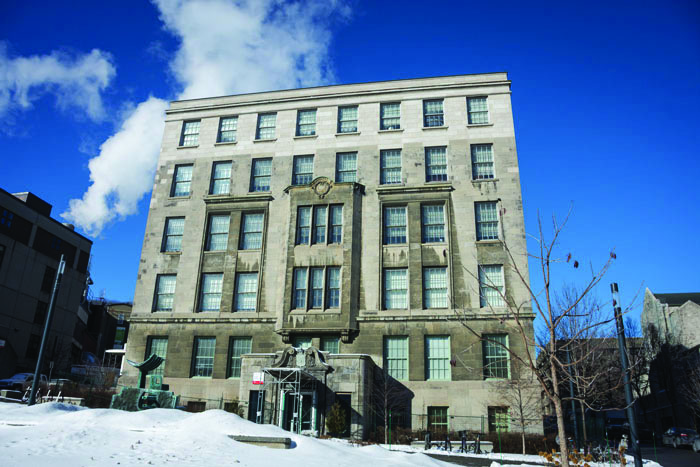As the COVID-19 pandemic nears its second anniversary, McGill’s response to the ongoing health crisis has been thoroughly disappointing and incompetent. It has gotten to the point where many students are taking matters into their own hands to protect themselves, their peers, and their loved ones. Undergraduates from the School of Social Work voted to go on strike after the administration overruled the school’s decision to postpone their return to in-person classes until Feb. 25. The strike came after McGill violated its own Senate resolution allowing faculties to make such decisions for themselves and the academic freedom that it professes to defend. Similarly, students from the Faculty of Law voted to go on strike until the university introduced better hybrid options. Instead of heeding to genuine concerns about the return to in-person activities, the administration has continued their email and video propaganda campaign in a frustrating attempt to pacify the more than 22,000 McGillians who have expressed their demand for changes through an open letter. This is on par for the course of an authoritarian, paternalistic administration, whose COVID-19 response has, frankly, been a disaster since the beginning of the pandemic.
A few days before the university first shut down early in March 2020, in my capacity as the Students’ Society of McGill University (SSMU) president, I remember speaking to Deputy Provost (Student Life and Learning) Fabrice Labeau about student concerns regarding the then-new virus that was spreading across the globe. As the SSMU President is responsible for ensuring the safety and well-being of the student body, I hoped to glean more information from him regarding the university’s plans. Labeau assured me key administrators were meeting regularly as part of the nascent Emergency Operations Centre (EOC), the insular group that has been deciding McGill’s COVID response over the past two years. I asked if students could be a part of that group, as it was important to communicate student concerns in real-time and have students be an active part of guiding the university’s response. In reply, he said that students would not get a seat at the table because the group presides over “operational matters.” To this day, the EOC does not have student representation.
From the very beginning, the administration’s response has failed students. When universities worldwide first began to shut down, students on exchange were left in the dark. Since then, students in residence have reported that the university has fallen short in upholding its own safety guidelines, and floor fellows have stated that they are not receiving the support or communication they need to do their jobs safely. McGill has neither imposed a vaccine mandate, unlike many other Canadian universities, nor, at the very least, required unvaccinated McGillians to undergo regular rapid testing, like the University of British Columbia. Over the final exam period last December, the administration forced students to complete exams in person, despite the University of Toronto, Queen’s University, and Dalhousie University, among others, refusing to do so, as the Omicron variant fomented the fifth wave of COVID-19.
In the two months since the Omicron variant first appeared in Canada, I had hoped the administration would use this time to make campus as safe as possible for those wishing to return to face-to-face learning. I had also hoped that our courses would be made as accessible as possible for those unable to attend, whether they be immunocompromised, infected with COVID-19, or dealing with the multifaceted effects the pandemic has had on our lives. Instead, the administration has resigned itself to letting McGillians get sick en masse and has left students to fend for themselves if they contract COVID-19 or have to quarantine, relying on the goodwill of their professors rather than a guarantee of online educational access. McGillians have lost faith in the administration’s ability to make the best choices for the safety and well-being of the McGill community.
But it’s okay everyone: The McGill administration knows what’s best for you.









